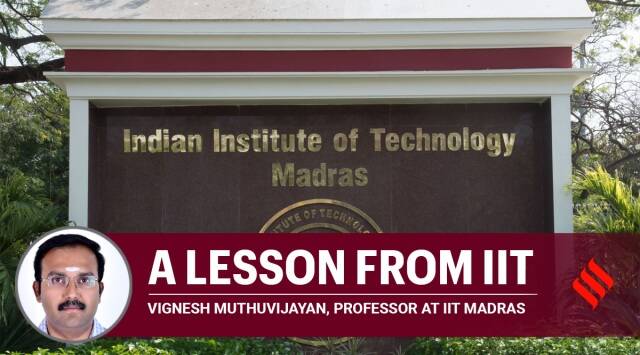Access to quality education was limited to the few that could afford the training required for cracking hyper competitive exams. For those with a low family income, education from premier institutions was near impossible. This scenario has changed in recent years, mainly thanks to the advent of technology.
Technology has helped democratise access. Additionally, new modes of teaching and learning, large-scale initiatives from government and private players have enabled learners across the world to learn from top universities and institutions.
India has been at the forefront of online education. In 2003, the National Programme on Technology Enhanced Learning (NPTEL), a project of the Ministry of Education (then called Ministry of Human Resources and Development), was initiated by the seven IITs (Bombay, Delhi, Kanpur, Kharagpur, Madras, Guwahati, and Roorkee) and IISc, Bangalore. The aim was to provide access to high-quality education to anyone interested in learning from these premiere institutions. NPTEL has gained tremendous success over the years, with more than 50 lakhs learners enrolling for courses every year.
The experience and success of NPTEL led IIT Madras to recently launch two non-residential 4-year BS degree programs – one in Data Science and Applications and another in Electronic Systems.
For the first time, learners of all ages and academic backgrounds could pursue an undergraduate degree or diploma from an IIT without having to clear a hypercompetitive entrance exam. While the Data Science and Applications program was launched two years back, the Electronic Systems was launched recently. The BS in Data Science and Applications already has 17000+ students.
The BS is predominantly an online program where students can learn from recorded content and live online interactions from anywhere. Unlike the campus-based BTech degree, this program does not require JEE. While students of all academic backgrounds are eligible to join the BS in Data Science and Applications program after completing Class 12, students interested in the Electronic Systems program must have studied Physics and Mathematics in Class 12.
Admission Process
The BS programs are designed keeping in mind the demand for skilled graduates in the fields of Data Science, Programming, and Electronic Systems. Admission to the program is through an inclusive qualifier process, where candidates who apply will be provided four weeks of content taught by IIT Madras faculty. IIT Madras will also conduct live sessions and provide practice tests and assignments that would help the students learn effectively. There will be a qualifier exam based on the four weeks of content that is provided, and everyone who scores above a cutoff in this exam can join the program.
Career opportunities
Data Science has emerged as one of the top multidisciplinary approaches in technology. According to the Bureau of Labor Statistics, employment of data scientists is projected to grow 36 percent from 2021 to 2031, which is faster than the average for all occupations. The major career options available to students taking this Data Science program include job positions such as Data analyst, Business analyst, Big data engineer, Data Scientist, Data Science programmer and so on.
Electronic Systems is a rapidly growing field. Today, there is an increasing need for professionals in this field. The scope in this field is vast and this branch has lucrative career options, whether it is positions such as Electronic System Designer, Embedded System Developer, System Testing Engineer, etc in industries such as Automotive, Semiconductor, Defence and so on.
The duration of this program is four years. However, students are provided with the flexibility to do this program at their own pace and convenience. This enables students to pursue this BS along with another degree, such as an on-campus college degree. Such students can choose the pace of the program by taking only as many courses as possible in a term. This flexibility is highly useful for working professionals who pursue this program.
Another unique feature of this BS program is the multiple exit options. There are three levels – Foundation, Diploma, and Degree levels. Based on their interest and suitability, students can choose the levels they want to pursue. If a student wants to learn only the basics, they can study only Foundation level and exit from the program with a certificate. The Diploma exit is intended for those who probably already have a degree and wish to strengthen their fundamentals or progress in their career in the field of Data Science or Electronic Systems. The degree program is for those students who wish to develop industry-ready skills in either Data Science or Electronic Systems and make a career in their chosen field. Degree holders become alumni of IIT Madras.
The programs comprise both online and in-person components. The online content includes a combination of videos, readings, live sessions for doubt clarifications, and weekly assignments. Every course of the program also has quizzes and final exams, which are conducted at designated exam centers across the country and abroad.
The Electronic Systems program has an additional laboratory component. The training for the lab sessions can be done at home with the use of electronic kits and detailed video lectures/tutorials provided by the faculty of IIT Madras. This hands-on training also requires the students to visit IIT Madras for performing the experiments for further training and assessment. This provides access to the IIT Madras campus to the learners for about two weeks every semester. As the students would get an opportunity to interact and learn directly from the IIT Madras faculty, this laboratory component greatly enhances the learning experience for the students.
Courtesy : The Indian Express








